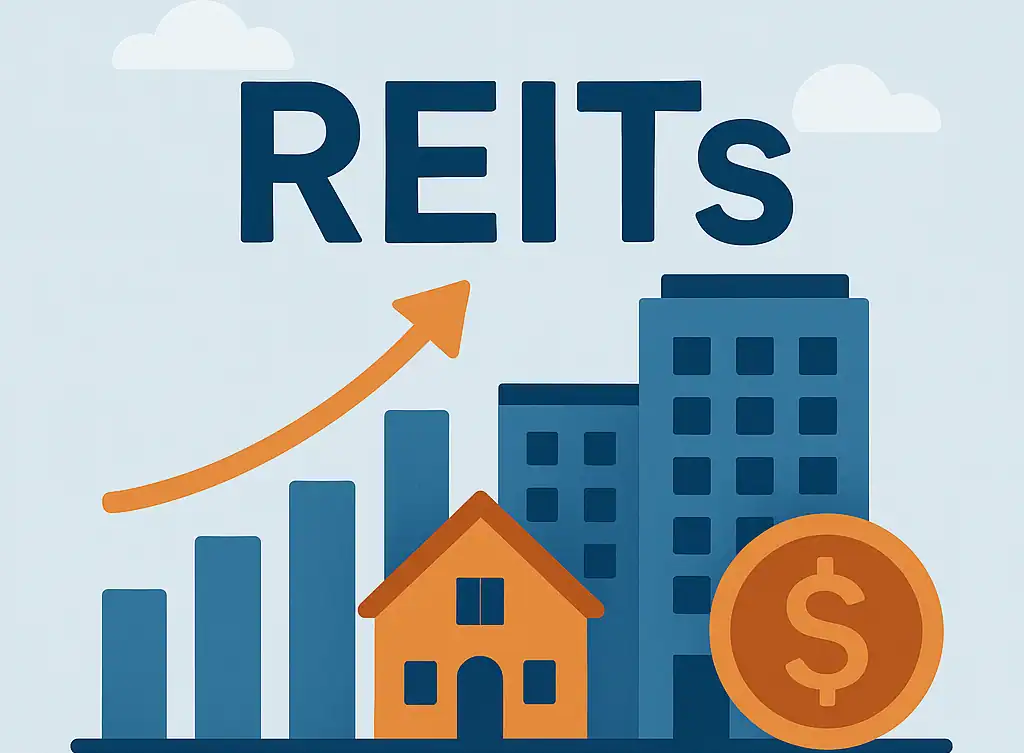The real estate market is one of the most dynamic and complex industries globally, influenced by economic conditions, population growth, infrastructure development, and geopolitical factors. Tracking regional trends and making data-driven decisions traditionally required extensive human analysis and expertise. However, Artificial Intelligence (AI) has revolutionized how real estate trends are monitored, analyzed, and forecasted. By leveraging machine learning, big data, and advanced analytics, AI offers precise insights into regional real estate trends, empowering investors, developers, and policymakers to make smarter decisions. From urban areas in Egypt to emerging markets across Africa and the Middle East, AI is becoming a critical tool for navigating the intricacies of real estate markets worldwide.
Overview
AI technology is reshaping real estate by transforming how regional trends are identified and utilized. It can analyze large volumes of data, such as property prices, transaction histories, neighborhood demographics, and economic indicators, to provide actionable insights. AI also detects subtle patterns and correlations that are difficult for humans to discern, such as the impact of new infrastructure on property values or changes in urban population density. By focusing on regional nuances, AI helps stakeholders understand how global factors influence local markets. This granular approach is precious in a sector where slight differences in location or timing can have significant financial implications.
Target of Using AI in the Real Estate Market
The primary target of using AI in the real estate market is to improve decision-making for all stakeholders. Investors leverage AI to identify lucrative opportunities, such as undervalued properties or emerging neighborhoods, maximizing their return on investment. Real estate developers use AI to predict future growth areas and plan projects accordingly. Governments and urban planners rely on AI insights to address housing shortages, design intelligent cities, and improve zoning policies. Furthermore, real estate agents and brokers benefit from AI-powered tools that help them offer tailored solutions to clients. By democratizing access to advanced analytics, AI ensures that individuals, businesses, and policymakers can confidently make data-driven decisions.
How Does It Work?
AI in real estate uses machine learning, predictive analytics, and big data to its full potential. These systems ingest data from multiple sources, including property listings, transaction records, economic indicators, and social media trends. Machine learning algorithms examine this data to find patterns and predict trends, such as price swings, rental demand, or market stability. Geospatial analysis, powered by AI, maps urban growth and infrastructure developments, highlighting areas with potential value. AI can process unstructured data, such as news articles or social media posts, thanks to natural language processing (NLP), which adds context to market forecasts. AI systems also learn and adapt over time, refining their accuracy with every new data input.
Egypt AI Real Estate Trends
In Egypt, integrating Artificial Intelligence (AI) into the real estate sector transforms how market trends are analyzed and opportunities are identified. AI is now essential for predicting real estate values and directing investment choices as the nation experiences tremendous urbanization and infrastructural growth. Significant cities like Cairo and Alexandria are at the forefront of this revolution. AI helps investors and developers predict the impact of large-scale projects such as the New Administrative Capital and the Cairo Metro expansion. By analyzing extensive datasets that include demographic trends, property transaction histories, and infrastructure developments, AI provides actionable insights into the areas poised for growth.
Additionally, AI is helping address challenges unique to the Egyptian real estate market, such as urban sprawl and housing shortages. Intelligent algorithms can identify undervalued areas needing development, directing resources to regions with untapped potential. Moreover, AI tools are increasingly used to cater to the preferences of Egyptian homebuyers, from affordability to proximity to amenities. This data-driven approach boosts investor confidence and enhances transparency, reducing risks for all stakeholders. With the government’s focus on creating smart cities, the role of AI is expected to grow, making it a cornerstone of Egypt’s real estate future.
Middle East AI Real Estate Trends
Across the Middle East, AI is revolutionizing the real estate market by providing unparalleled insights into rapidly evolving urban landscapes. AI is used by nations like Saudi Arabia and the United Arab Emirates (UAE) to oversee large-scale construction projects like Expo City in Dubai and NEOM, a future city driven by state-of-the-art technology. AI is particularly valuable in these regions due to the scale and speed of development, as it helps investors predict demand, optimize resources, and identify profitable opportunities in real-time. With AI-driven geospatial analysis, stakeholders can assess the impact of infrastructure projects like new airports, transportation networks, and energy hubs on property values.
AI also addresses critical challenges in the Middle East’s real estate market, such as market volatility and shifting demographics. By analyzing real-time data, AI systems provide early warnings about potential market fluctuations, enabling investors to mitigate risks effectively. Additionally, AI-powered platforms are personalizing property searches, catering to the unique preferences of a diverse population, including expatriates and residents. In countries like Qatar and Oman, AI enhances sustainable development by identifying areas for eco-friendly construction and resource-efficient urban planning. As the region continues to adopt innovative city initiatives, AI is set to play a pivotal role in shaping the Middle East’s real estate landscape, ensuring long-term growth and innovation.
Africa AI Real Estate Trends
In Africa, AI is being used to address housing shortages and urban sprawl. Countries like Kenya and South Africa are adopting AI to improve housing affordability and guide infrastructure investments.

Benefits
The benefits of using AI in real estate are extensive. AI offers precise and real-time insights into market trends, enabling stakeholders to make informed decisions. It democratizes access to advanced analytics, making powerful tools available to small-scale investors and large corporations. AI reduces the time and effort needed for property analysis, providing efficient, scalable solutions. It also minimizes human biases and errors, improving the overall accuracy of market forecasts.
Accuracy and Efficiency
AI enhances accuracy by processing vast amounts of data and identifying patterns that traditional methods may miss. Machine learning algorithms continuously improve with new data, ensuring increasingly precise predictions. AI also offers unmatched efficiency, analyzing data at lightning speed and delivering actionable insights in real-time. Accuracy and efficiency give stakeholders a significant advantage in competitive real estate markets.
Challenges
Despite its advantages, AI adoption in real estate faces several challenges. Data quality and availability are significant issues, as accurate predictions rely on comprehensive datasets. High implementation costs can be prohibitive for smaller firms. Ethical concerns like data privacy and algorithmic bias add complexity to AI integration. Additionally, AI systems’ “black box” nature can make them challenging to interpret and trust.
Current Impact on the Market
AI is already transforming the real estate sector. Property managers use AI to optimize rental pricing, while investors rely on predictive analytics to identify emerging trends. Developers use AI to plan projects in high-growth areas, and policymakers leverage it to design smarter cities. AI’s ability to increase transparency and reduce inefficiencies makes the market more accessible and equitable for all stakeholders.
Future of Digital Real Estate Market
The future of the real estate market will be increasingly digital, with AI playing a central role. Advancements in AI will integrate technologies like blockchain, IoT, and augmented reality to create seamless, data-driven platforms. These innovations will enhance market transparency, improve transaction efficiency, and empower stakeholders with even more sophisticated tools for decision-making.
Frequently Asked Questions
How does AI analyze regional real estate trends?
AI uses machine learning and big data analytics to process information from various sources, such as transaction histories, demographics, and infrastructure developments, to identify patterns and predict trends.
Is AI reliable for global and regional real estate markets?
Yes, AI is highly reliable when provided with high-quality data. However, its effectiveness depends on the availability and accuracy of local datasets.
Who benefits most from AI in real estate?
Investors, developers, real estate agents, policymakers, and urban planners all benefit from AI’s ability to provide actionable insights and streamline decision-making.
What challenges does AI face in real estate?
Challenges include data quality issues, high implementation costs, privacy concerns, and the complexity of interpreting AI algorithms.
Will AI replace human expertise in real estate?
AI complements human expertise by providing data-driven insights but cannot replace real estate professionals’ nuanced understanding and strategic thinking.
AI is revolutionizing how regional real estate trends are identified and analyzed, offering unmatched accuracy, efficiency, and scalability. From Egypt and the Middle East to Africa and beyond, AI empowers stakeholders to make data-driven decisions, uncover opportunities, and drive innovation. While challenges remain, the benefits far outweigh the drawbacks, positioning AI as a cornerstone of the future digital real estate market. Embracing this technology will enable investors, developers, and policymakers to navigate the complexities of the global real estate landscape with confidence and foresight.










